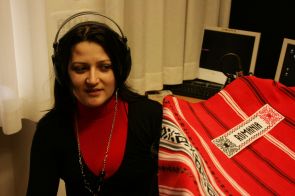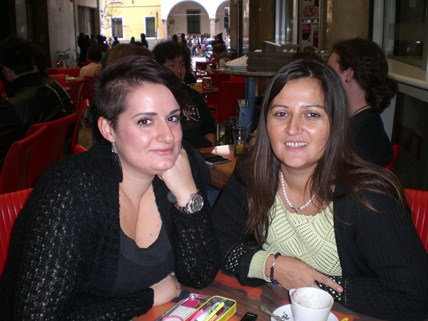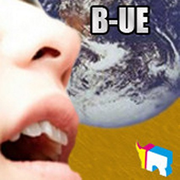We haven’t forgotten that these people ran away from their country where freedom of speech was a privilege
The story of Mihaela from Padua, Northern Italy
Written by Anna Stopazzolo and Hannah Sobocinski
Interview by Anna Stopazzolo

Romanian-born Mihaela moved to the student city of Padua in Northern Italy once she had completed her studies in Journalism. Padua is known for its high percentage of immigrants living within and on the outskirts of the city, and became further known in 2006 when a wall was built around an estate housing mostly African immigrants and which was plagued by a high crime, drug and prostitution rate. This wall created a lot of controversy and highlighted the issues Northern Italy faces with regards to immigrant integration. It was in fact dubbed “Padua’s Berlin Wall”.
Radio show broadcasted on Radio Bue. Author: Mihaela Cirvase
After her move, Mihaela was quickly confronted with the reality of living with an “illegal” status, which drove her to live in constant fear of being discovered by the Italian police and being sent back to a country she felt she could not return to. The accession of Romania to the European Union in 2007 proved to be a turning point in her life, as she was able to find a job which eventually led her to working at the call center of the University of Padua. She then entered into collaboration with the existing radio of the University, Radio B-UE, with which she developed a radio program called “B-UE Basterebbe Unire l’Europa”, which can be interpreted as “Let’s Unite Europe”. This program focuses on ensuring that the voices of immigrants in Padua be heard, allowing for intercultural exchange through open dialog. The representatives of this project aim to provide an alternative model of integration and to give hope to all immigrants that they too have a place in the city. Mihaela insists that what immigrants need is “psychological assistance” as well as practical assistance, such as language courses which provide the tools to live and work in an Italian city, as well as helping immigrants to find work in Italian families. She states that the city of Padua and its university are relatively progressive towards immigrants and integration, but that there is always room for improvement, in particular with regards to the right to vote of immigrants, which she feels is essential to ensure their involvement and commitment to the public and political spheres of city life. Mihaela asserts that a lot of progress had been made through the European Union, but that the battle is far from over: “We haven’t forgotten that these people ran away from their country where freedom of speech was a privilege … it is our duty to ensure their enjoyment of this right.”


